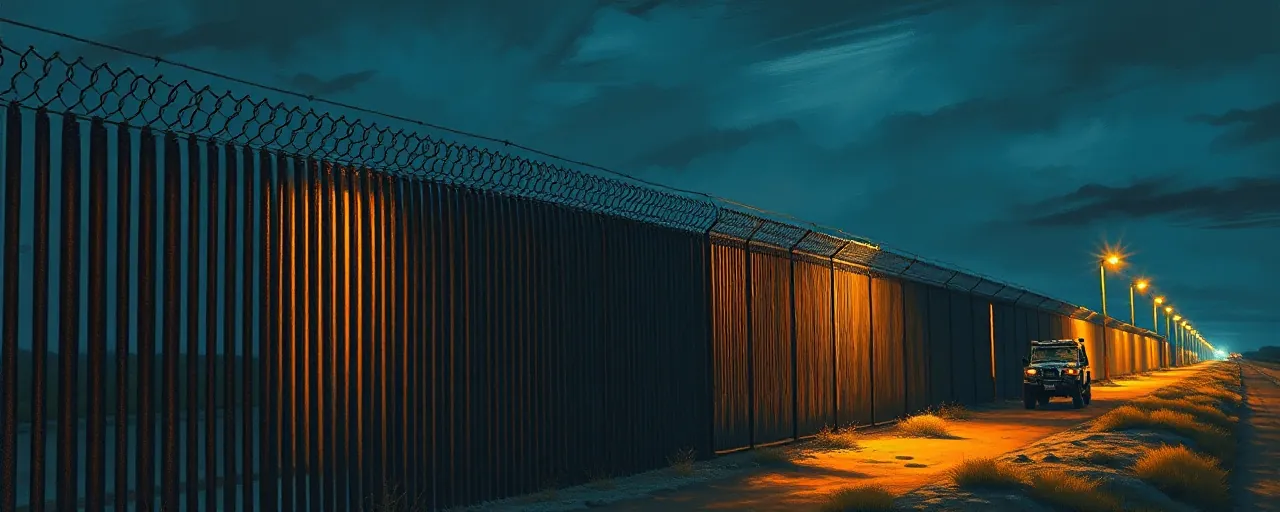A Wake-Up Call for Safety
Phoenix just became a safer place, and it’s no accident. On April 8, U.S. Immigration and Customs Enforcement, backed by federal heavyweights like the FBI and DEA, swept through Arizona’s capital to haul in three illegal aliens with rap sheets that read like a crime novel. Among them? A 48-year-old Mexican national, Bonifacio Renteria-Cruz, wanted for homicide south of the border. This isn’t just a local win; it’s a signal that law enforcement is done playing catch-and-release with dangerous offenders. The operation hit like a lightning bolt, reminding everyone why borders and laws exist in the first place.
Some folks might clutch their pearls and cry foul, claiming these crackdowns are too harsh. But let’s get real: when a guy wanted for murder is walking free in your neighborhood, you don’t offer him a hug and a bus ticket. ICE’s mission, as Phoenix Field Office Director John Cantu put it, is about national security, public safety, and border control. Period. This isn’t about politics; it’s about keeping communities from turning into crime havens. The numbers don’t lie, and neither does common sense.
The Muscle Behind the Mission
What makes this operation stand out is the raw power of federal teamwork. ICE didn’t go it alone; they brought in the FBI, DEA, and Homeland Security Investigations to form a dragnet no criminal could slip through. Targeting Phoenix, a hub where crime can fester if unchecked, they zeroed in on aliens with serious convictions. Renteria-Cruz wasn’t some small-time crook; he’s a fugitive Mexican authorities have been hunting for years. Getting him off Arizona’s streets proves what happens when agencies align with one goal: protect Americans first.
This isn’t new territory for ICE. Historical data shows the Criminal Alien Program, around since 1986, has been rooting out threats for decades. By 2000, Congress was pouring funds into it, and for good reason: jail checks and data-sharing with the Justice Department catch people who’d otherwise vanish into the shadows. In 2024 alone, multi-agency task forces nabbed over 74,000 fugitives nationwide, including gang members and drug traffickers. Phoenix’s operation is just the latest chapter in a playbook that works.
Why the Critics Miss the Mark
Not everyone’s cheering, of course. Some advocacy groups argue these sweeps cast too wide a net, scooping up folks who aren’t violent threats. They’ll point to past criticisms of programs like Secure Communities, claiming they erode trust in law enforcement. But here’s the reality check: ICE’s latest move targeted specific, high-risk offenders, not random workers or families. The three arrested in Phoenix weren’t here selling lemonade; they were career criminals. Ignoring that distinction is like saying a bank robber deserves a pass because he’s got a day job.
Then there’s the privacy angle, with some raising eyebrows over data-sharing between DHS and agencies like the IRS to track deportable immigrants. Sure, nobody loves Big Brother, but when the tradeoff is catching a murderer before he strikes again, most Americans would take that deal. The alternative, letting fugitives like Renteria-Cruz roam free, isn’t just reckless; it’s a betrayal of every law-abiding citizen. Critics need to decide: safety or sentimentality? The choice isn’t hard.
Building a Safer Tomorrow
Phoenix’s success is a blueprint for what’s possible when enforcement gets serious. February 2025 saw border apprehensions plummet to 330 a day, a historic low, thanks to executive orders fast-tracking deportations. Policies like Texas Senate Bill 8, mandating local cops work with ICE, are spreading, and for good reason: they deliver results. Every criminal alien removed is one less threat to your town, your street, your family. That’s not fear-mongering; that’s math.
The global angle matters too. The Justice Department’s extradition of 10 fugitives in April 2025, from murderers to cartel runners, shows how international cooperation shuts down crime’s escape routes. ICE’s Phoenix operation leaned on that same spirit, proving borders don’t stop justice. If we keep this momentum, pairing local grit with global reach, the message to criminals is clear: there’s nowhere to hide.
No Time for Half-Measures
Let’s not kid ourselves: one operation, even a stellar one, doesn’t solve everything. But Phoenix shows what’s at stake and what’s working. ICE and its partners aren’t just chasing headlines; they’re dismantling threats one arrest at a time. Every criminal alien deported sends a signal: break our laws, endanger our people, and you’re gone. That’s a policy Americans can rally behind, whether they’re in Arizona or Maine.
The fight’s not over, but the path is clear. Keep the pressure on, fund the agencies that deliver, and tell the hand-wringers to step aside. Safety isn’t negotiable, and neither is sovereignty. ICE’s work in Phoenix isn’t just a victory for one city; it’s a promise to every community that law and order still mean something. Let’s hold that line.
